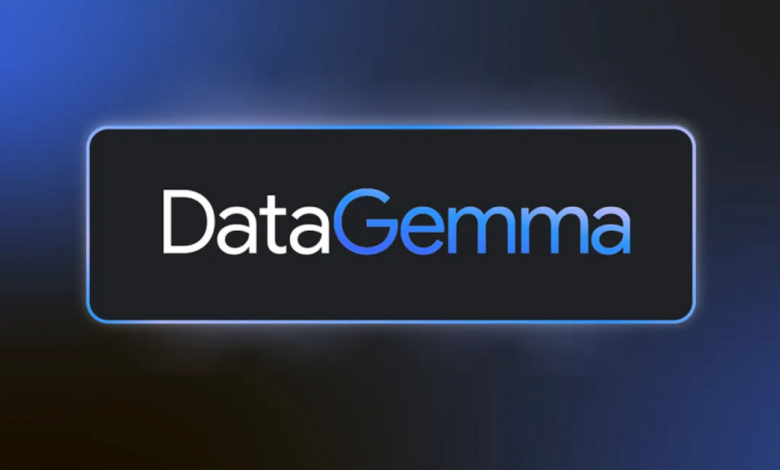Table Of Contents
In the rapidly evolving world of artificial intelligence (AI), one of the greatest challenges has been ensuring the accuracy of information generated by large language models (LLMs). These models, despite their advanced capabilities, have been prone to “hallucinations”—instances where they produce incorrect or entirely fabricated information. To address this issue, Google has introduced a groundbreaking tool called DataGemma. This new initiative is designed to fact-check LLM responses by referencing verified sources and citing reliable data. By reducing the occurrence of hallucinations, DataGemma aims to enhance the trustworthiness and reliability of AI-driven content, a critical development for companies like Google that are investing heavily in AI technology.
DataGemma: A Solution to AI Hallucinations
Google, a leader in AI innovation, has been grappling with the problem of hallucinations in its language models. These hallucinations occur when an AI model generates false or misleading information, often without the user realizing it. This poses significant risks, particularly for applications that rely on factual accuracy, such as healthcare, finance, and education.
Enter DataGemma, a tool specifically designed to combat this issue. By utilizing two advanced methodologies—Retrieval-Interleaved Generation (RIG) and Retrieval-Augmented Generation (RAG)—DataGemma acts as both a fact-checker and a data enhancer. It cross-references AI-generated content with Google’s Data Commons, a repository of over 240 billion data points from trusted organizations like the United Nations and the World Health Organization.
This initiative is a significant leap forward in AI development, addressing one of the core weaknesses of LLMs. By grounding responses in verified data, DataGemma not only improves factual accuracy but also boosts user confidence in AI-generated content.
How DataGemma Works: RIG and RAG Methodologies
Retrieval-Interleaved Generation (RIG)
RIG is one of the key features of DataGemma. This method functions as a real-time fact-checker for LLMs. When a user asks a question, the model generates an initial response. RIG then verifies portions of that response against data from Data Commons. If discrepancies are found, the system corrects the inaccuracies and returns a factually accurate answer, complete with citations. This ensures that the final output is not only reliable but also transparent, providing sources for the information presented.
Retrieval-Augmented Generation (RAG)
RAG, on the other hand, takes a proactive approach by retrieving relevant information from Data Commons before generating a response. For example, if a user asks about healthcare progress in a specific country, RAG pulls relevant statistics from trusted databases and incorporates them into the model’s answer. This method enhances the depth and accuracy of the response by embedding real-world data directly into the AI’s output.
Both methodologies work in concert to reduce the risk of hallucinations, making DataGemma a powerful tool in ensuring that AI-generated content is not only informative but also trustworthy.
Performance, Limitations, and Future Prospects
Initial Testing Results
DataGemma has shown promising results in early testing. The RIG methodology improved factual accuracy significantly, with correct retrievals occurring in about 58% of cases—compared to a baseline of just 5-17% without Data Commons. Meanwhile, RAG demonstrated an accuracy range of 24-29%, particularly excelling in numerical and statistical queries. While these numbers represent a marked improvement, there is still room for growth, particularly in scenarios where relevant data is sparse.
Limitations and Challenges
Despite its potential, DataGemma is not without its limitations. The tool’s effectiveness is largely dependent on the availability of relevant data within Data Commons. In some cases, RIG was unable to retrieve usable data for approximately 75% of test questions, highlighting the need for more extensive data coverage. Additionally, while RAG improves accuracy, it sometimes struggles with drawing inferences, particularly in complex or abstract questions.
Future Outlook
As Google continues to expand its Data Commons repository and refine the RIG and RAG methodologies, the accuracy of DataGemma is expected to improve. Prem Ramaswami, head of Data Commons at Google, emphasized that the ultimate goal is to create a more reliable AI ecosystem—one where hallucinations are minimized, and trust in AI-generated content is maximized. DataGemma is currently available for research purposes, with plans to offer broader access in the future.
Implications for AI Development and Trust
A New Era in AI Reliability
The introduction of DataGemma marks a pivotal moment in the development of AI technologies. As LLMs become increasingly integrated into everyday applications, the need for factual accuracy and reliability is paramount. DataGemma tackles this issue head-on, offering a solution that not only corrects errors but also enhances the overall quality of AI-generated content.
Fostering Innovation and Trust
By making DataGemma available to researchers and developers, Google is fostering a culture of innovation in AI. The tool’s open-source nature encourages experimentation, allowing developers to integrate DataGemma into their own projects and improve the factual accuracy of their LLMs. This, in turn, contributes to a more robust and trustworthy AI ecosystem, where users can rely on the information provided by AI systems.
DataGemma is a significant advancement in the realm of artificial intelligence. By addressing the critical issue of hallucinations in LLMs, Google has taken a major step toward creating AI models that are not only intelligent but also reliable and trustworthy. While challenges remain—particularly in expanding the availability of relevant data—the tool’s initial performance is promising. As more data is integrated and the methodologies are refined, the future of AI-generated content looks brighter, with fewer hallucinations and more accurate, data-driven responses. DataGemma represents the next frontier in AI development, and its potential to revolutionize how we interact with AI is immense.


